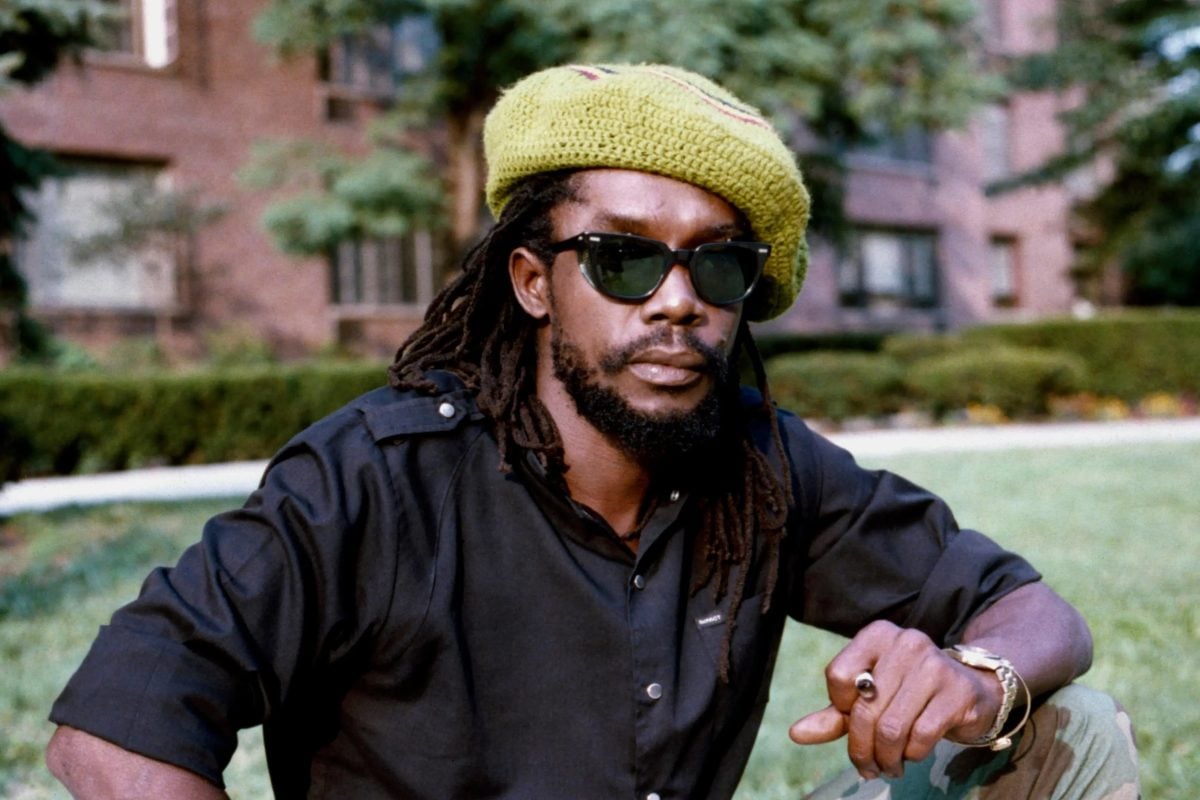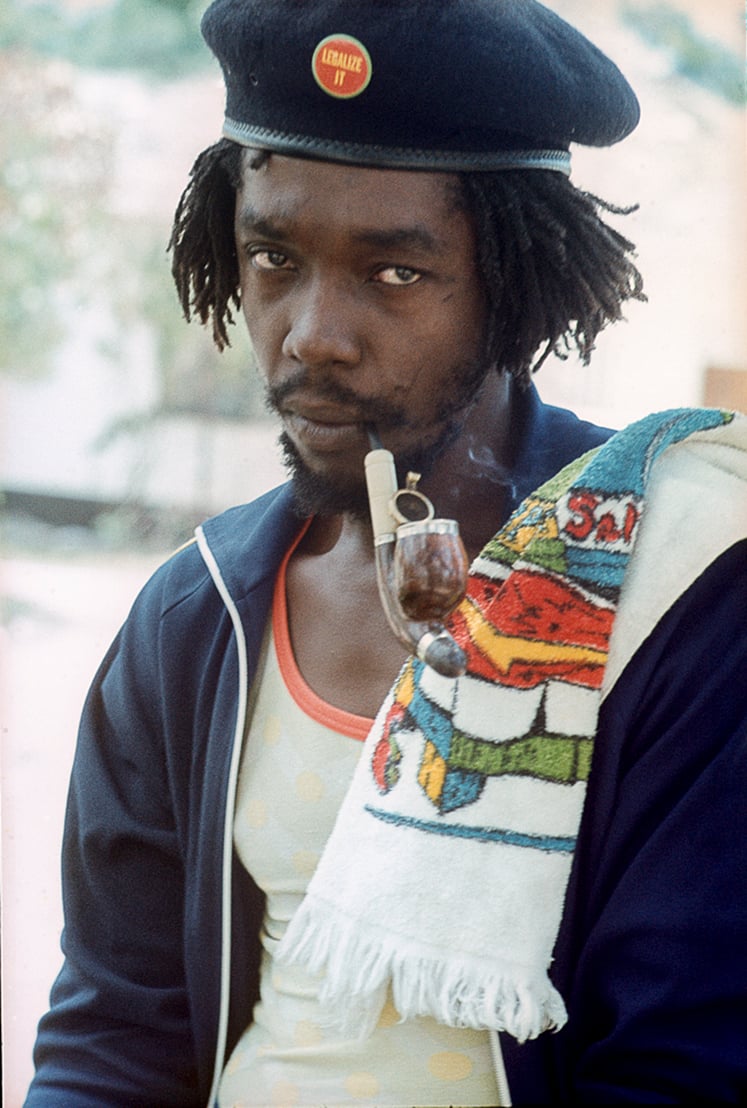The Peter Tosh Song That Almost Wasn’t Recorded Becomes His First To Hit Major Milestone On Spotify

Reggae legend Peter Tosh‘s daughter, Niambe McIntosh, and his former manager, Copeland Forbes, have expressed their delight that Johnny B. Goode — the song Tosh was initially reluctant to record — has hit 100 million streams on Spotify, marking a first for the Jamaican icon.
The song surpassed the 100 million milestone last Thursday.
According to Niambe, the milestone is divinely timed as it aligns with Tosh’s 80th birthday on October 19, which will be celebrated at his final resting place in the picturesque seaside village of Belmont in Westmoreland. “I wasn’t keeping count, so I’m definitely pleasantly surprised to find out it’s reached over a hundred million, particularly around this time. There’s just a beautiful energy around the 80th Earth Strong Celebration coming up in October,” Niambe told DancehallMag.
“It is spiritual guidance that I feel, you know, at work where there’s so much excitement, so much participation, so much enthusiasm from all different fronts and all different types of people that know his music and know him personally. So yeah, it’s the right time,” she added. Continued Niambe: “I feel like he (Peter) is just letting me know, you know, that it’s the time, that now is his time and the world is eager to celebrate him”.
Johnny B. Goode, a cover of Chuck Berry’s 1958 rock and roll classic of the same name, was the fifth track on Peter Tosh’s nine-track Mama Africa album, released in 1983. The cover peaked at No. 84 on the Billboard Hot 100 and No. 48 on the UK Singles Chart.
Mama Africa was inspired by Tosh’s first visit to Africa, where he witnessed firsthand the hardships faced by Africans. Forbes, who wrote extensively about the making of the album in his book ‘Reggae My Life Is,’ said that ‘divine intervention’ made Johnny B Goode the success it became, despite the song facing opposition from Peter’s bandmate, Bunny Wailer, who had urged Tosh not to record it.
“You know something? When I saw it, I said yes. It’s a great significance. And Peter wouldn’t call it a coincidence anymore. [He would] say it was created to be. If he was alive, that’s the word he would have used,” Forbes told DancehallMag. “But it’s of great significance. On his 80th birthday celebration, the song that got the most fights, even from his bredrin, in the form of a bandmate, turned out to be a great seller in that way.”
Forbes noted that Johnny B. Goode played a key role in elevating Mama Africa, which reached No. 59 on the Billboard 200 Albums Chart, the highest position for a Tosh album. “So, you know that Johnny B. Goode song is a very, very great song that, despite all the fights, it came out to be the song that opened up people to the Mama Africa album,” he said.
‘All the fight’
Forbes, who described the production for Johnny B. Goode as a rollercoaster filled with dramatic twists and turns, said if he hadn’t kept his cool and sought to coax Peter into recording the song, the iconic cover would have never made it to the album.
He explained that Peter had initially refused to record it, throwing a tantrum over the American references in the lyrics. He also had to rush the recording before Bunny Wailer, who was against Peter recording the song, discovered that Peter was working on it.
“Boy, I tell you, one of the most dramatic parts of it is that when I went up to the studio that day, we laid the rhythm… we know the key of him singing and so on, and we laid the rhythm because the song was brought to us by Chris Kinsey, who was the producer, and Donald Kinsey, the lead guitarist,” Forbes explained.
He added that Kinsey suggested they cover the song, and after listening, they agreed. However, on the day of recording, Forbes arrived at Dynamics Studio to find the production team outside. He was then told that Bunny Wailer didn’t want Peter to record the song, claiming the singer wouldn’t receive royalties since it was a Chuck Berry original.
Forbes said he thought that since Peter had already recorded (You Gotta Walk) Don’t Look Back with Mick Jagger, a Temptations cover, there shouldn’t be any issue with covering Johnny B. Goode. He said when he approached Peter, who was sitting in his car rolling a spliff, Bunny was with him and made it clear that the song was a ‘no go’: “Yow, Peter naw do dah chune deh yuh nuh. No, mi nuh inna it. Not doing it.”
Forbes decided to stay quiet and returned to the studio, unsure of the next move. Then, an opportunity arose when Bunny mentioned he was running out of Westmoreland ganja and left to get some. Forbes seized the moment to gently persuade Peter to record the song, assuring him that if he didn’t like the final version, it wouldn’t have to go on the album.
With Bunny gone, Peter agreed but on one condition: the recording had to be done in one take. The team quickly set up, but once Peter began, things got heated. “And suddenly mi hear pure bad wud inna di studio,” Forbes recalled. Peter was furious, shouting, “A wha kind a bomboclaat ting dis yuh want mi come sing?”
Peter was upset about the American references in the song, saying he would not use his voice to glorify U.S. culture. Forbes said he quickly reworked the lyrics, changing “deep down in Louisiana close to New Orleans” to “deep down in Jamaica close to Mandeville,” without getting prior approval from the original label.
Confident that music producer Danny Simms could secure permission later, Forbes proceeded, making more adjustments, such as replacing “Mama seh son you gotta be a man, gotta be a leader of a rock and roll band, with “reggae band”, this after Peter, again, abruptly stopped reviewing the lyrics, declaring once again that there was another ‘offensive’ line which he wanted edited.
“Peter stop deh suh and seh: ‘Oi, oi. Wha oonu want mi do, promote Rock and Roll? So I took out Rock and Roll and write ‘gotta be the leader of a Reggae band’,” Forbes recounted.
As Peter who was by then enjoyed the session, raced to finish before Bunny’s return, he stumbled over the lyrics, requesting multiple do-overs, calling out, “Come forward,” every time he wanted to restart.
Forbes said that each time, the team restarted the recording, piecing the final track together from seven different takes.
As the recording came to a close, Forbes who had instructed the security guard to alert them when Bunny came back, said the phone rang with the warning: “Jah B is back.”
Forbes quickly wrapped up the session as Peter nonchalantly exited the studio and sat in his car, just in time for Bunny’s return. Bunny had no idea that the recording was signed, sealed and delivered.
After Peter drove out, Forbes and the team stayed at the studio all night, patching the song together from the various takes. Once satisfied, they called Danny Simms to request permission for the lyrical changes. Fortunately, the record label agreed, and Johnny B. Goode became a reality.

